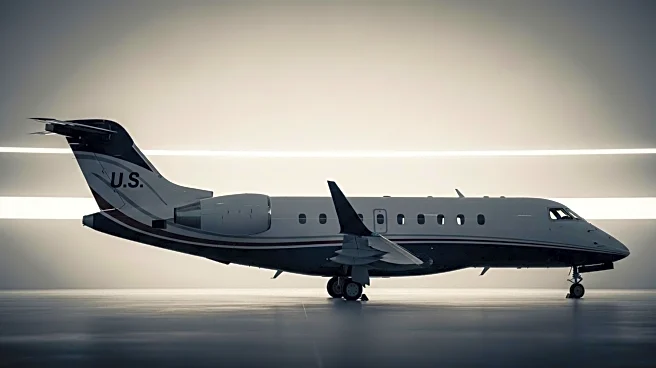What's Happening?
The U.S. regional airline industry is grappling with aging fleets and restrictive labor agreements known as scope clauses, which limit the size and capacity of aircraft that regional affiliates can operate. These clauses are part of pilot union agreements designed to protect mainline pilot jobs. As a result, regional airlines are unable to refresh their fleets with the latest technology, opening opportunities for new entrants like Maeve Aerospace, a Dutch startup. Maeve has attracted investment from SkyWest, the largest operator of the Embraer 175, which is currently the only scope-compliant regional jet in production. The industry is also considering a potential return to turboprops, which were largely replaced by regional jets in the 1990s.
Why It's Important?
The inability to modernize fleets due to scope clauses poses significant challenges for U.S. regional airlines, impacting their operational efficiency and competitiveness. This situation could lead to increased operational costs and reduced service to smaller cities, which rely heavily on regional air service. The potential introduction of new aircraft from companies like Maeve Aerospace could offer a solution, but it requires significant investment and regulatory approval. The situation also highlights the broader issue of labor agreements in the aviation industry and their impact on fleet modernization and service delivery.
What's Next?
The future of U.S. regional airlines may involve strategic investments in new aircraft technologies and potential shifts in labor agreements. Companies like Maeve Aerospace are poised to play a significant role if they can secure the necessary funding and regulatory approvals. Additionally, the industry may see a gradual shift towards larger aircraft in mainline fleets, as seen with Delta's introduction of the A220. The outcome of these developments will significantly impact the regional airline market and its ability to serve smaller communities effectively.
Beyond the Headlines
The challenges faced by regional airlines underscore the complex interplay between labor agreements, technological advancements, and market demands. The potential resurgence of turboprops, driven by companies like ATR, could reshape public perceptions and operational strategies in the U.S. market. Furthermore, the involvement of international players like Maeve Aerospace highlights the global nature of the aviation industry and the potential for cross-border collaborations to address domestic challenges.









